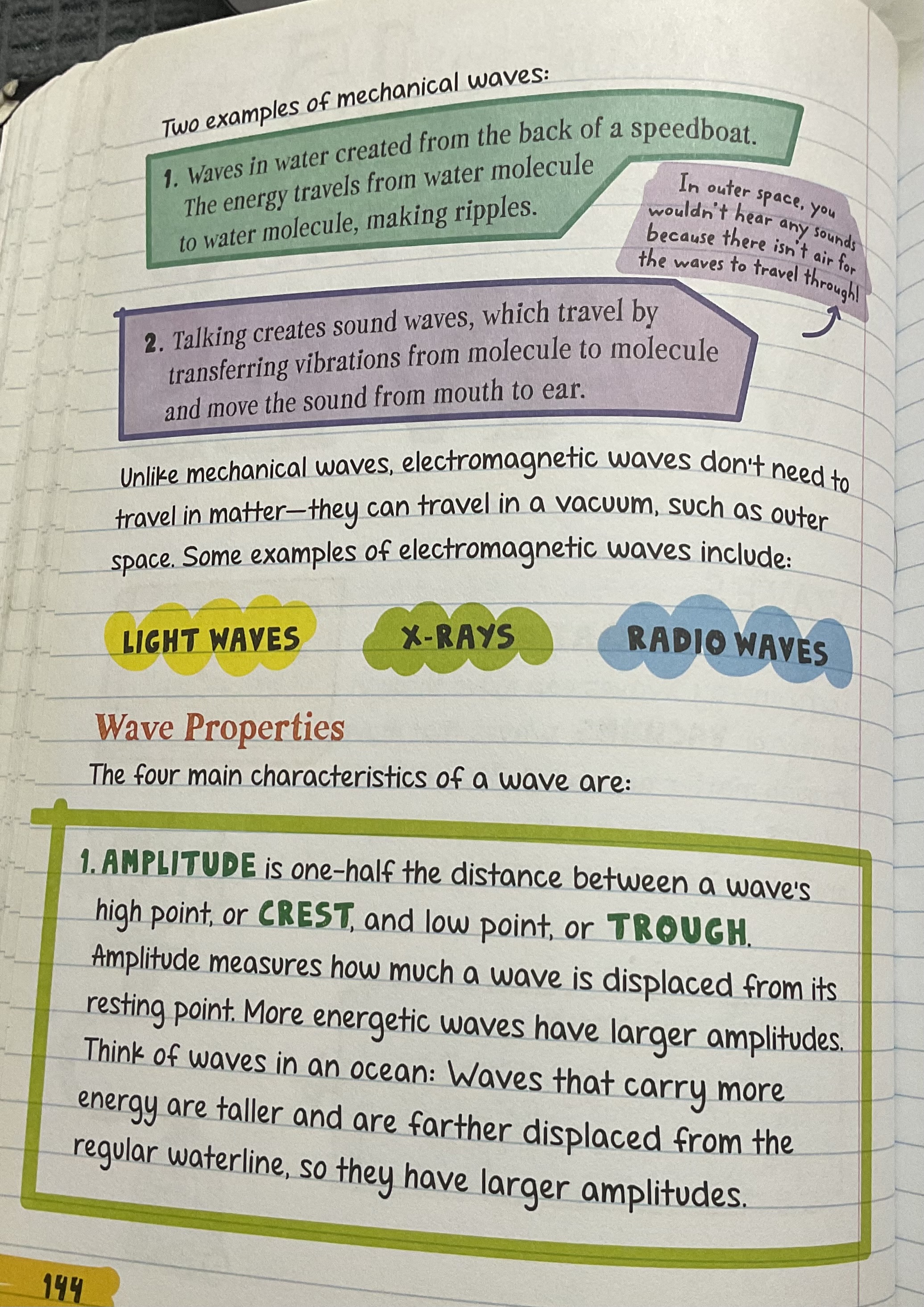
Understand the Problem
The text describes two types of mechanical waves and introduces the concept of wave properties, including amplitude. It differentiates between mechanical waves and electromagnetic waves and provides examples and details about their characteristics.
Answer
Mechanical waves need a medium; electromagnetic waves can travel in a vacuum. Amplitude measures wave displacement.
The image explains that mechanical waves require a medium to travel, like water or air, while electromagnetic waves can travel in a vacuum. Examples of mechanical waves include water and sound waves. Electromagnetic wave examples are light waves, X-rays, and radio waves. Amplitude is a key wave property.
Answer for screen readers
The image explains that mechanical waves require a medium to travel, like water or air, while electromagnetic waves can travel in a vacuum. Examples of mechanical waves include water and sound waves. Electromagnetic wave examples are light waves, X-rays, and radio waves. Amplitude is a key wave property.
More Information
Mechanical waves include examples like sound and water waves that require molecules to propagate energy. Electromagnetic waves, such as light, can travel through the empty space without a medium.
Tips
A common mistake is confusing mechanical waves with electromagnetic waves regarding their travel mediums.
AI-generated content may contain errors. Please verify critical information